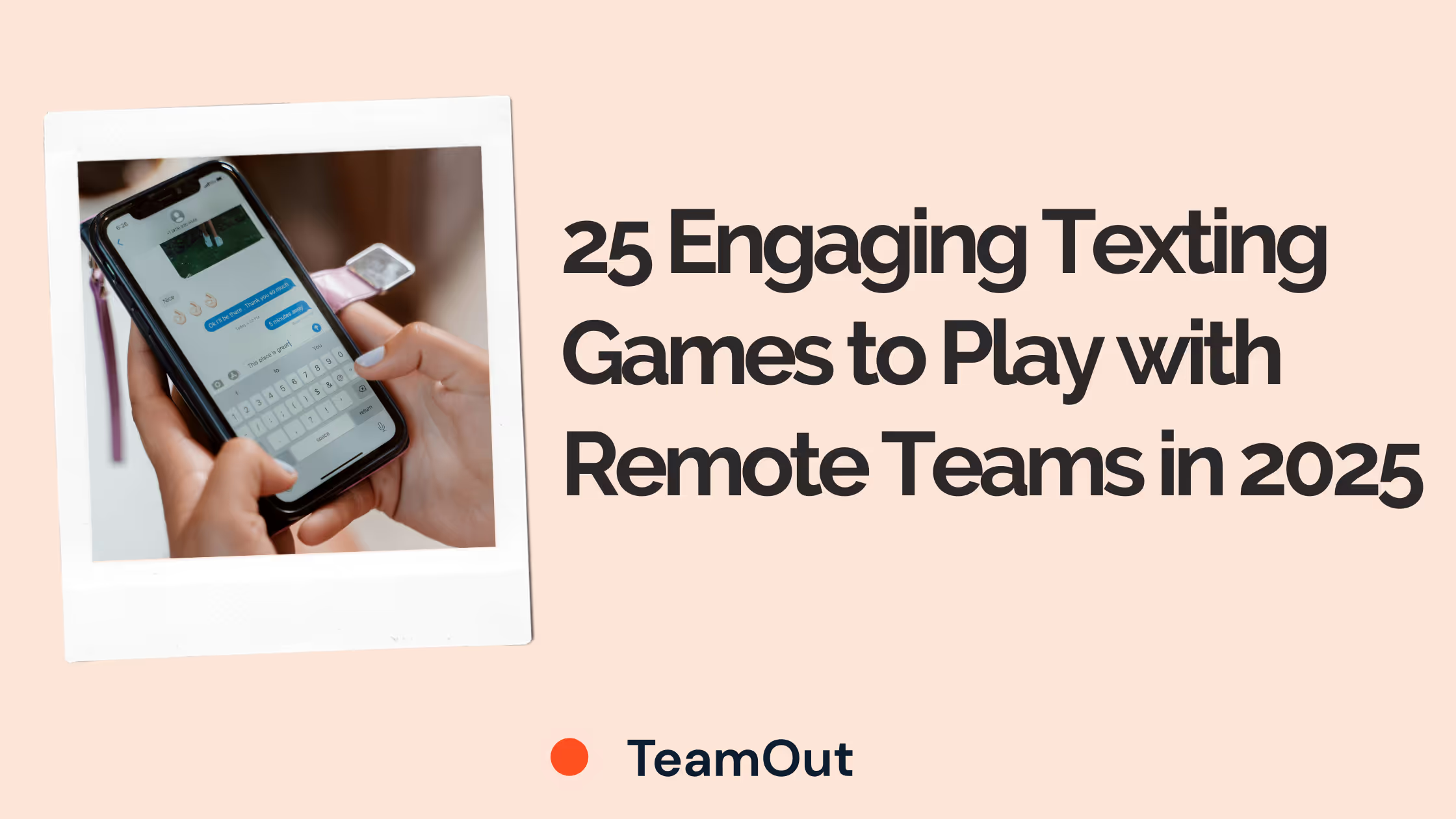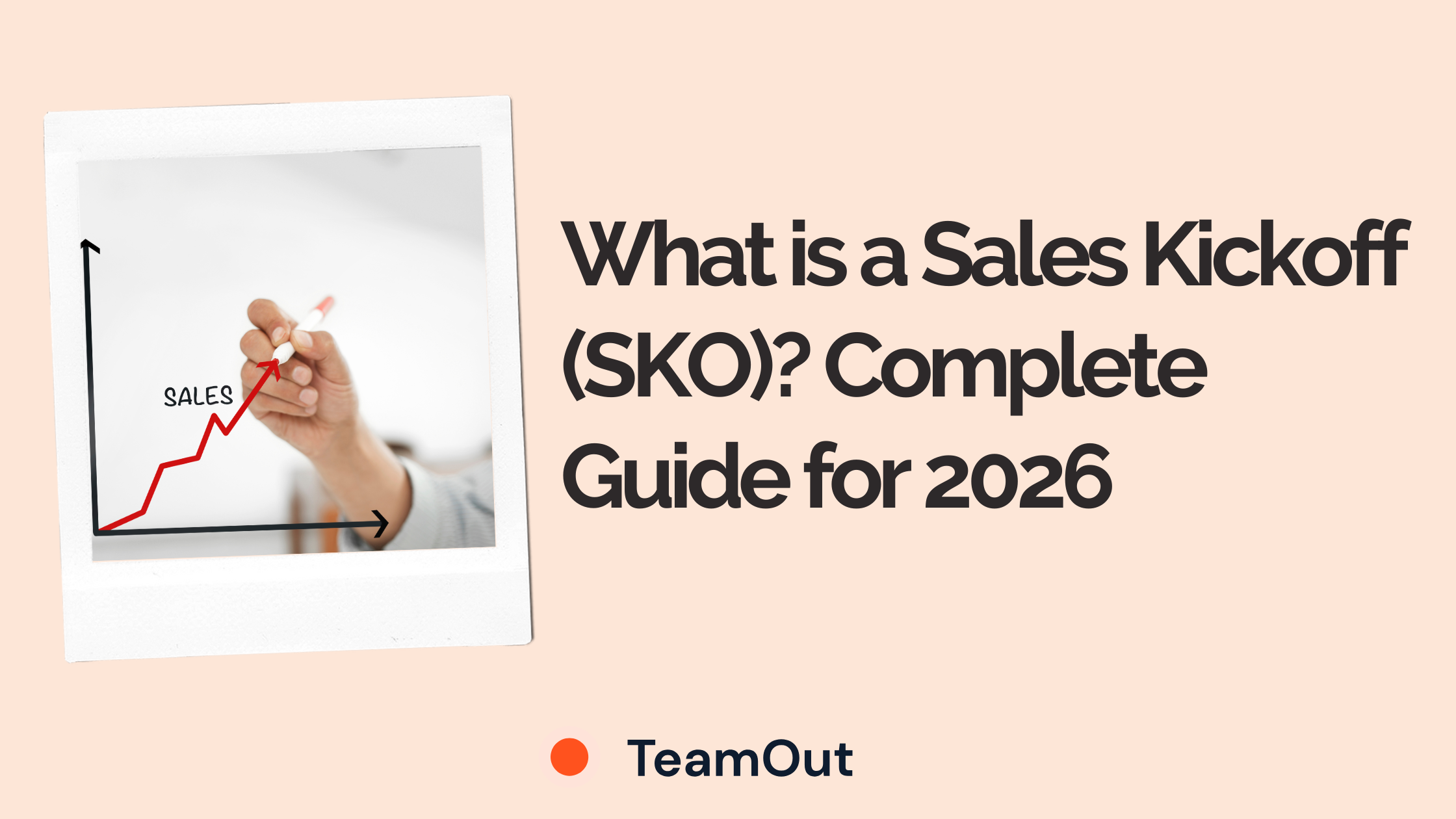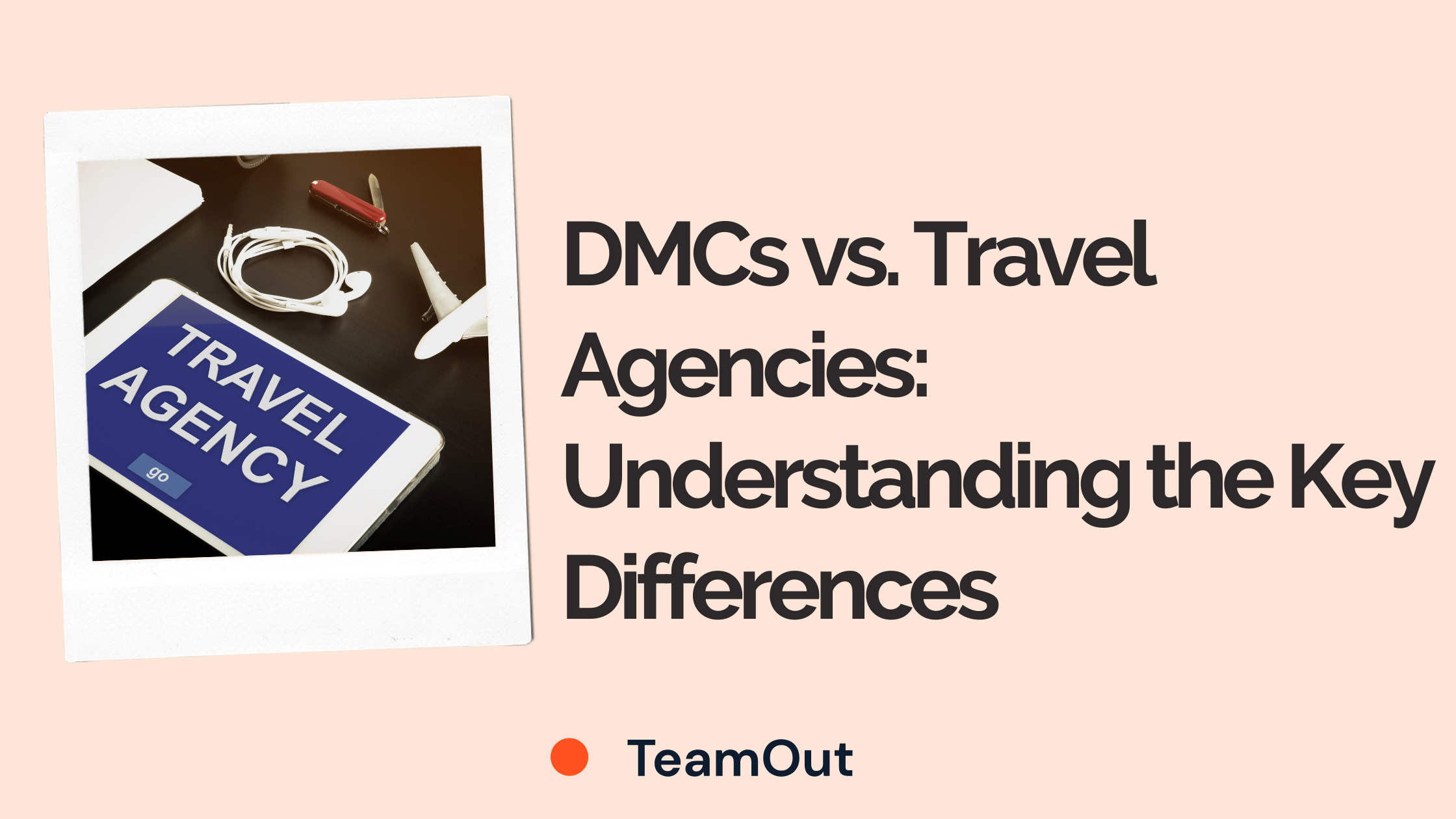When you watch your remote development team struggle through another awkward virtual icebreaker, you know something has to change. Despite months of team-building exercises, your developers remain siloed, communication feels forced, and cross-functional collaboration is practically nonexistent.
Gallup's 2025 State of the Workplace Report states that weakening team bonds and a lack of meaningful management are key reasons for poor engagement, which can be as low as 13%.
You're not alone in this challenge. Traditional team building often fails because it feels artificial and disconnected from actual work scenarios. Board games, however, create genuine moments of vulnerability, strategic thinking, and collective problem-solving that translate directly to professional environments.
If you're ready to move beyond trust falls and rope courses, you'll discover that authentic team building can break down departmental silos, reveal hidden leadership potential, and create psychological safety, which can lead to higher productivity, creativity and organizational effectiveness, according to Forbes.
This comprehensive guide presents 19 carefully selected board games that will enhance communication, build trust, develop strategic thinking, and strengthen collaboration within your organization. You'll find detailed implementation strategies, specific benefits, and professional facilitation tips that ensure maximum impact for your investment.
Communication and Interpretation Games
These team-building board games focus on communication skills and require group members to actively listen and interpret clues. These communication-boosting exercises foster collaboration and help everyone stay on the same page, often through word games or cooperative deduction games. Here are a few:
1. Codenames
Codenames is a highly engaging word-based team-building board game that sharpens communication skills and collaborative interpretation. Teams must connect words using only single-word clues provided by their spymaster, promoting creative thinking and strategic planning.
Step-by-step:
- Divide the group into two equal teams.
- Each team chooses a spymaster.
- Place a grid of 25 word cards on the table.
- Spymasters give one-word clues to help their team identify as many of their agents as possible.
- Team members discuss and guess which words correspond to their agents, avoiding the opponent’s agents and the assassin card.
- The process repeats until one team identifies all their agents or the assassin is revealed.
Duration: 15–30 minutes
Group size: 4–8 players (can be adapted for larger groups by splitting into multiple teams)
Why it works for teams: This activity boosts morale and enhances communication by requiring participants to distill complex ideas into single, strategic words. It fosters active listening and helps group members develop shared mental models as they learn how colleagues think and make connections.
2. Wavelength
Wavelength is a fun team-building board game where team members must sync their thinking and communicate abstract concepts by guessing where a target word lands on a spectrum. This is an excellent game to foster team bonding and improve communication.
Step-by-step:
- One player draws a card with opposing concepts (e.g., “underrated” to “overrated”).
- The clue-giver positions a dial to indicate where a target word falls on that spectrum.
- Other team members discuss and guess the target word based on the dial position and concept.
- The answer is revealed, sparking discussions about assumptions and perspectives.
Duration: 30–45 minutes
Group size: 2–12 players
Why it works for teams: Wavelength fosters collaboration and enhances communication skills by encouraging team members to actively listen and align their perspectives. This team-building exercise promotes team cohesion and helps everyone understand how others think.
3. Dixit
Dixit is a creative team-building board game that uses illustrated cards to encourage storytelling and creative expression. It’s a great game for game night and promotes improved communication and team bonding.
Step-by-step:
- Each round, one player (the storyteller) gives a clue for an abstract artwork card.
- Other team members submit cards that might match the clue.
- Everyone votes on which card belongs to the storyteller.
- Points are awarded for creative clues that some, but not all, players interpret correctly.
Duration: 30–45 minutes
Group size: 3–8 players (ideal for small teams)
Why it works for teams: Dixit boosts creative thinking and problem-solving abilities, as team members must consider how others interpret their clues. This fun game fosters inclusion and helps quieter team members shine through interpretation.
Strategy and Collaboration Games
Strategy board games and co-op board games involve the entire team in strategic planning and resource management. Players compete against challenging scenarios, using critical thinking and teamwork to complete missions or earn victory points. Check these out:
4. Pandemic
Pandemic is one of the best board games to challenge teams to combine strategy and teamwork to manage resources and save the world from disease. It’s an excellent team-building activity for developing crisis management and problem-solving skills.
Step-by-step:
- Players take on unique roles as disease-fighting specialists.
- The team collaborates to move around the board, cure diseases, and solve puzzles.
- Players share limited resources and coordinate actions.
- The team wins by curing all diseases before time runs out, or loses if outbreaks overwhelm the world.
Duration: 45–60 minutes
Group size: 2–4 players (can be adapted for larger groups by forming other teams)
Why it works for teams: Pandemic is a cooperative game that fosters collaboration, critical thinking, and improved communication under pressure. This cooperative board game encourages teamwork and company concentration, making the team happy and cohesive.
5. Forbidden Island
Forbidden Island is an accessible cooperative board game that introduces team members to collaborative decision-making and shared accountability. This team-building board game fosters teamwork and problem-solving in a low-pressure, fun environment.
Step-by-step:
- Each player takes on a role with special abilities.
- Team members work together to collect artifacts as the island sinks.
- Players must coordinate movements and manage resources.
- The team wins by escaping with all artifacts before the island is lost.
Duration: 30–45 minutes
Group size: 2–4 players per team
Why it works for teams: Forbidden Island encourages collaboration and critical thinking as the game relies on shared accountability and resource management. It fosters teamwork and helps participants develop problem-solving abilities.
6. Spirit Island
Spirit Island is an advanced cooperative board game that challenges team members to think systemically and coordinate complex, long-term strategies. This team-building activity is perfect for groups seeking to develop critical thinking and problem-solving abilities.
Step-by-step:
- Each player selects a spirit with evolving powers.
- Team members must coordinate actions and plan multiple turns.
- Players work together to defend the island from invaders.
- The team must remain flexible and adjust plans as conditions change.
Duration: 90–120 minutes
Group size: 1–4 players (best for small teams)
Why it works for teams: Spirit Island fosters teamwork and critical thinking by requiring participants to plan and leverage complementary strengths. The game relies on collaborative strategy and problem-solving.
7. Ticket to Ride
Ticket to Ride is a board game that combines strategy and friendly competition, making it a great team-building activity for diverse skill levels. This fun game encourages critical thinking and resource management.
Step-by-step:
- Players gather train cards to claim routes.
- Team members compete to connect cities and complete destination tickets.
- Players must balance long-term planning with adaptive responses to opponents’ moves.
Duration: 30–60 minutes
Group size: 2–5 players per team
Why it works for teams: Ticket to Ride fosters healthy competition and problem-solving abilities as team members manage resources and adapt strategies. This team game focuses on both individual and group planning, making it a good game for team building and for boosting team dynamics.
Creative and Problem-Solving Games
These creative and problem-solving games encourage creative thinking and problem-solving skills as group members work together to solve puzzles. They rely on input from all players and foster teamwork, making them excellent for team bonding. These are TeamOut's top picks:
8. Mysterium
Mysterium is an innovative cooperative board game that develops creative problem-solving and interpretive communication skills. This team-building board game is perfect for fostering teamwork and critical thinking.
Step-by-step:
- One player is the ghost; others are investigators.
- The ghost communicates using abstract image cards.
- Investigators must decipher the clues and reach a consensus.
- The team wins by correctly identifying suspects, locations, and weapons.
Duration: 45–60 minutes
Group size: 2–7 players
Why it works for teams: Mysterium is a cooperative game that fosters teamwork and problem-solving abilities as team members must interpret ambiguous information and reach consensus. The game enhances creativity and collaborative communication.
9. Escape Room Games (Exit/Unlock Series)
Escape room games like Exit and Unlock are immersive team-building activities that develop collective problem-solving abilities under time pressure. These cooperative board games are excellent for fostering teamwork and critical thinking.
Step-by-step:
- Select a themed escape room game.
- Team members work together to decode clues and solve interconnected puzzles.
- Players must synthesize information and manage time.
- The team wins by solving all puzzles before time runs out.
Duration: 60–90 minutes
Group size: 1–10 players
Why it works for teams: Escape room games foster teamwork and problem-solving skills as they focus on collaboration and information synthesis. These activities are great for team building and critical thinking.
10. Telestrations
Telestrations is a drawing and guessing game that breaks down communication barriers and creates psychological safety. This fun team-building board game is perfect for fostering teamwork and improving communication skills.
Step-by-step:
- Players alternate between drawing and guessing as concepts pass around.
- Each player interprets the previous drawing or guess.
- The reveal phase generates laughter as interpretations become increasingly absurd.
Duration: 30–45 minutes
Group size: 4–8 players
Why it works for teams: Telestrations fosters teamwork and improves communication skills by encouraging creative confidence and friendly competition. This is a great game for team building.
Quick and Accessible Games
Perfect for small teams or new team members, these are the best board games if you are searching for something easy to learn or quick to play. They offer friendly competition and are ideal for a break room game night or enhancing team cohesion:
11. Wits & Wagers
Wits & Wagers is a lighthearted trivia board game that combines knowledge, betting, and competition. Players answer questions with numerical answers, then place bets on which answer they think is closest to the correct one, making it accessible and engaging for all skill levels.
Step-by-step:
- The host reads a trivia question with a numerical answer.
- Each player (or team) writes down their guess.
- All answers are revealed, and players place bets on which answer they believe is closest to the correct one.
- The correct answer is revealed, and players earn points based on their bets and accuracy.
Duration: 15–30 minutes
Group size: 3–10+ players
Why it works for teams: Wits & Wagers is a competitive game that fosters teamwork, healthy competition, and quick decision-making skills as players strategize bets and enjoy a game together.
12. Spyfall
Spyfall is a fast-paced social deduction board game where all but one player knows a shared location, and the spy must deduce it by asking questions. The other players aim to identify the spy while concealing the location, making this team-building activity a test of questioning, observation, and information management.
Step-by-step:
- All players except one receive cards with the same location; the remaining player is the spy.
- Players take turns asking and answering questions to gather or conceal information.
- After a set time, players vote to reveal who they suspect is the spy. If the spy is caught or guesses the location correctly, the game ends.
Duration: 15–30 minutes
Group size: 3–8 players
Why it works for teams: Spyfall develops strategic questioning and decision-making skills, fostering collaboration as players manage information and read behavioral cues.
13. One Night Ultimate Werewolf
One Night Ultimate Werewolf is an intense social deduction board game where players receive secret roles, take night actions, and then discuss and vote to eliminate the werewolf. This team-building game challenges players to persuade, reason logically, and make decisions under time pressure.
Step-by-step:
- Each player receives a secret role card.
- Some roles act secretly at night.
- Players discuss, persuade, and vote to eliminate the werewolf.
- The werewolf is revealed, and the team wins or loses based on the outcome.
Duration: 10–20 minutes
Group size: 5–15 players
Why it works for teams: This board game improves decision-making skills and persuasion, encouraging healthy competition and teamwork as players analyze social dynamics.
14. The Mind
The Mind is a cooperative card game where players must play numbered cards in ascending order without verbal communication, relying instead on shared intuition and timing. This team-building activity tests patience, non-verbal synchronization, and group intuition.
Step-by-step:
- Each player receives a hand of numbered cards.
- Players must play their cards in ascending order without speaking.
- Success depends on reading subtle cues and trusting group timing.
Duration: 15–30 minutes
Group size: 2–4 players
Why it works for teams: The Mind fosters collaboration and decision-making skills by encouraging non-verbal synchronization and collective intuition.
Trust-Building Games
Trust-building games are valuable tools for the entire group, as the game involves supporting each other to overcome challenges. These trust-building activities foster trust and help improve team dynamics and team performance.
15. Hanabi
Hanabi is a cooperative card game where players hold cards facing away from themselves and give limited clues to help teammates play cards in the correct order. This team-building board game builds trust and feedback skills through careful information sharing.
Step-by-step:
- Players hold cards so only others can see them.
- Players take turns giving limited, specific clues.
- Team members play cards based on the clues, aiming to create a perfect sequence.
Duration: 25–35 minutes
Group size: 4–8 players
Why it works for teams: Hanabi enhances decision-making skills and teamwork by requiring players to give and receive constructive feedback and trust in others’ expertise.
16. Captain Sonar
Captain Sonar is a real-time board game that simulates submarine battles, with teams of four each handling different roles (Captain, First Mate, Engineer, Radio Operator). This team-building activity demands clear communication, role clarity, and coordination under pressure.
Step-by-step:
- Divide into two equal groups of four players.
- Each player takes a specific role on the submarine.
- Teams track and attack each other, communicating constantly to coordinate actions.
- The first team to sink the opposing submarine wins.
Duration: 45–75 minutes
Group size: 8 players (two teams of four)
Why it works for teams: Captain Sonar develops decision-making skills, cross-functional communication, and teamwork by simulating high-pressure, real-time scenarios.
17. Battlestar Galactica
Battlestar Galactica is a complex cooperative board game with hidden traitors, where players work together to guide a fleet to safety while some secretly sabotage the mission. This team-building game challenges players to make difficult decisions under uncertainty and manage resources.
Step-by-step:
- Players receive secret roles, some as loyal humans, others as Cylons.
- The group faces resource management and crisis cards.
- Players must balance trust and skepticism, making critical decisions to survive.
Duration: 2–3 hours
Group size: 3–6 players
Why it works for teams: Battlestar Galactica fosters decision-making skills, leadership, and teamwork by requiring players to navigate trust, resource management, and moral dilemmas.
Leadership Development Games
These modern board games develop decision-making skills and strategic planning. In these leadership development activities, the entire team plays together, relying on leadership and teamwork to manage resources and complete objectives.
18. Dead of Winter
Dead of Winter is a semi-cooperative board game where players work together to survive a zombie apocalypse while each pursues secret personal objectives. This team-building activity challenges teams to balance individual and group goals, manage resources, and resolve conflicts.
Step-by-step:
- Players choose a survival scenario and secret objectives.
- Players perform actions to gather resources, defend, and complete objectives.
- The group must manage crises, resolve conflicts, and sometimes make tough choices for survival.
Duration: 90–150 minutes
Group size: 3–5 players
Why it works for teams: Dead of Winter is a team-building game that develops decision-making skills, conflict resolution, and collaboration by forcing players to balance self-interest with group survival.
19. Gloomhaven
Gloomhaven is an epic campaign-style cooperative board game where players embark on a persistent adventure, making decisions that shape the evolving story and world. This team-building game requires long-term strategic thinking, adaptive collaboration, and evolving teamwork.
Step-by-step:
- Players select characters with evolving abilities.
- The group works together to complete missions, making decisions that impact future sessions.
- Players must evolve their tactics and teamwork as the campaign progresses.
Duration: 60–120 minutes per session (campaign play)
Group size: 1–4 players
Why it works for teams: Gloomhaven is a team-building game that enhances decision-making skills and strategic collaboration through its evolving campaign structure. This board game is a powerful tool for team-building activities that require long-term thinking and shared goals.
Transforming Your Team Through Strategic Play
You now have a comprehensive toolkit of 19 proven board games that can transform your workplace collaboration, communication, and culture.
The key to success lies not just in playing these games, but in the implementation that connects gameplay to real workplace challenges. You'll find that the most powerful transformations happen when you consistently apply these experiences over time, building a culture where collaboration, trust, and strategic thinking become natural team behaviors.
Remember that effective team-building is an ongoing process, not a one-time event. You should view these board games as tools in a larger strategy for developing high-performing teams that can adapt, innovate, and succeed together regardless of the challenges they face.
With a satisfaction rate of 95% and a track record of over 1,000 successful events, TeamOut is here to smooth the event planning process for your next corporate offsite or gathering. Schedule a free consultation with us! Your team deserves more than generic trust exercises: They deserve experiences that create change and measurable results.

















.webp)


